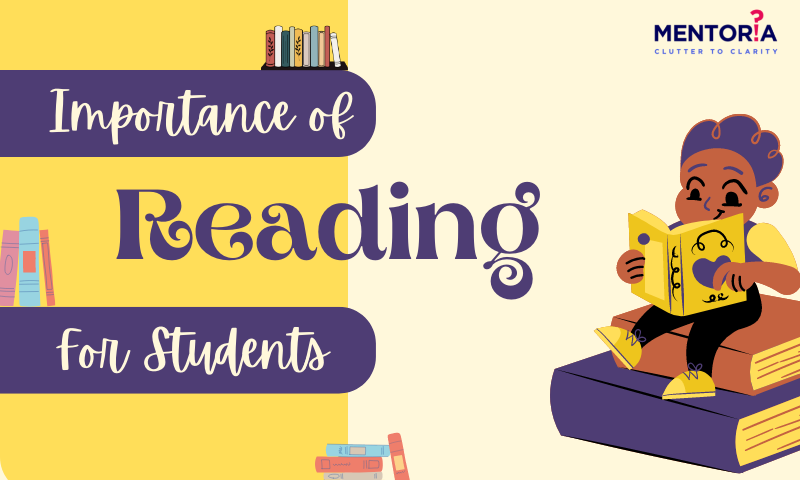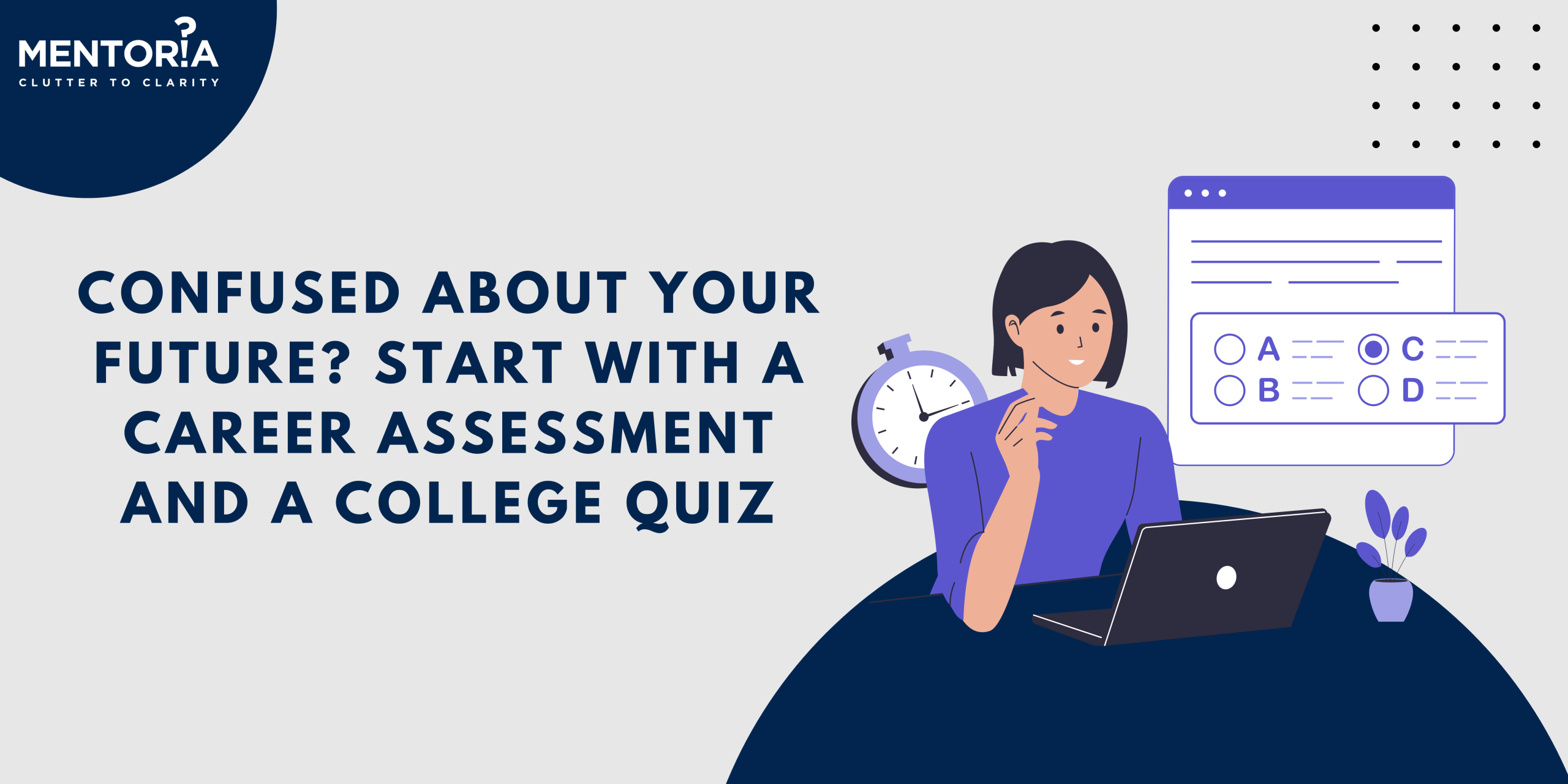Importance of Reading for Students


Jacqueline Kennedy said,”There are many little ways to enlarge your child’s world. Love of books is the best of all,” and we couldn’t agree more!”
How does a mini-vacation sound to you right now? Do you sometimes want to escape without travelling anywhere? Or maybe some new specific subject caught your heart recently, and you cannot stop thinking about it and want to learn as much as possible right away?
Well, then we have good news for you! Did you know reading provides all of this and more for you! So, for anyone who wonders, “why is reading important?” we’re here to share multiple reasons with you!
However, some students have to read solely because they are told they must for school. If you belong to this category, it may be helpful for you to understand the many importance of reading for students, which we will discuss here.
So now, all that’s left to be done is to start and keep reading!
What are the advantages of reading?
Books are regarded as students’ best friends since they not only provide knowledge, but can also be the perfect escape during one’s mundane everyday routine! What’s more, books take us into a unique world of imagination and, in turn, enhance our standard of living!
Reading in the early years has multiple advantages and is the key to a child’s stable mental and emotional growth. One key benefit of the importance of reading for students is that it also helps develop critical thinking skills. In addition, reading books improves and expands your knowledge, enhances your inventiveness, builds your vocabulary and becomes a forever friend!
Besides being an essential requirement, reading also has wide-ranging cognitive and literacy-building advantages. Here are some of them:
- Helps you view the world differently: Reading introduces and exposes you to new things, feelings, understandings, and information and even helps you guide your way through life! While reading, you understand things from a different perspective. It makes you realise and understand the world and yourself differently. It opens up your mind and helps you accept the changes in your life, both good and bad!
- Enhances brain activity: Unlike spending hours watching television or being active online, reading requires focus. Therefore,it engages your mind and activates and stimulates more brain regions than other passive forms of entertainment.
- Better and transformed vocabulary: It’s scientifically proven that by introducing students to new words, reading can expand and boost their vocabulary. A study conducted in 2015 showed how reading-related activities were the leading cause of vocabulary development from grades four to ten!
- Reading enriches creativity and imagination: Reading is one of the finest ways to foster imagination! The more you read, the better you can build and expand your knowledge. You naturally become open to fresh ideas and approach things better. When you read, you get teleported into a new unique world far, far away from the harsh realities of life where you are completely free! This element nurtures your mind to improve thoughts for brand new worlds and various opportunities, which sparks creativity. Reading lets you look at things and life differently!
- Helps strengthen your writing skills: A strong vocabulary can enhance your writing skills. Reading encourages students to stay positive and express their thoughts more clearly. Reading helps you develop a knack for understanding the perspective of various writers, which helps you write and express yourself better. It is extremely crucial to comprehend the subject matter and allow your memory to retain it.
- Entertains and promotes peace of mind: Reading is one of the simplest forms of entertainment for humans. As humans, we tend to be fascinated by the world of stories, and books let us escape into these beautiful alternative worlds to explore. This transcends us to another reality and helps us distance from our everyday problems for a little while.

Fun and simple ways to encourage reading at home!
Developing a life-long reading habit at an early age can set students up to succeed in learning environments. Through reading, students can build their vocabulary and spark a curiosity for knowledge. However, given all the distractions in today’s fast paced world, students often feel a little too demotivated to spare some time from their schedule and read. But all they need is a little nudge and encouragement for them to fall in love with the art of reading.
Here are a few practical ways to encourage more reluctant readers to start reading!
- Make yourself a dedicated reading space: Make it as comfortable as possible; add some cushions, a comfortable chair or even a bean bag with good lighting; that’s a must! And make sure it has a quiet ambience where you can really relax and focus on your book or any reading material.
- Reading knows no bounds!: Immerse yourself in reading all sorts of materials! Don’t limit yourself to only books or study materials; read magazines, pamphlets, and instructions, whatever is near your reach! Things to read are everywhere, and students will start to see how useful being able to read is in real-life situations.
- Start a discussion with your friends: Nothing beats team effort! Start reading different books with your friends, in this way, you not only motivate yourself to read more, but your friends too! Once you finish reading a book, ask them about their experience! Their favourite character, their favourite plot twist, and whatnot!
- Make reading a regular habit: Try and establish a daily reading routine; it might be before lunch, bed or even before you go to school! It might seem a bit tricky at first, but once you get used to it, you’ll be waiting for the time when you finally get back home and get to read your favourite book!
- Read for fun and pleasure: It must be enjoyable to develop a reading habit. Don’t test yourself or force yourself to read hundreds of pages at one go! It’s all a process, and it takes time! Also, remember slow, and steady wins the race, take your time and get in your own flow and enjoy the process!
How long should students read daily?
We have already established the benefits of reading books for students and how to make yourself read more! But if you’re new to the practice, you might be wondering, “but how long do I have to read for?” Don’t worry; we have got the answer for you! It seems that 15 minutes per day (that does not include the time spent reading at school or college) is the ‘magic number’ for reading gains.
This figure comes from a research analysis that compared the active reading time and reading scores of more than over 2.5 million students.
In contrast, those who read for less than five or ten minutes per day had lower levels of growth than those who were reading for fifteen to twenty minutes per day and saw considerable growth and reading gains.
But students reading for just over a half-hour to an hour per day saw the most significant gains of all! So you will get there as well once you start making it a habit!

Whatever you choose to do, always remember that your persistence will pay off. Let us break the stigma that reading is boring. No other activity will let you travel, experience culture, and fall in love so easily as reading does!
It’s normal to feel a bit stuck on how to start reading, but it’s something you can’t ignore, especially in your student life! It will not only help you with your studies but also help you thrive in your future career!
We, at Mentoria, explore your strengths and interests to help you find the right career. Then, we help you plan your next steps and develop a learning plan for your development areas! So get in touch with our counsellors today and find out the easiest ways to efficiently get a head start in your reading journey while you get #CareerReady! So what are you waiting for? Take the Mentoria Assessment today!






